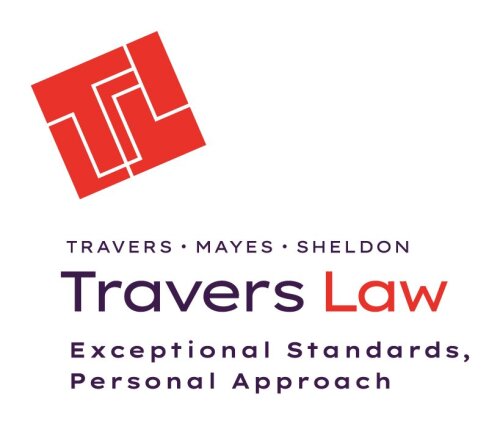Best Father's Rights Lawyers in Waterloo
Share your needs with us, get contacted by law firms.
Free. Takes 2 min.
Free Guide to Hiring a Family Lawyer
List of the best lawyers in Waterloo, Canada
About Father's Rights Law in Waterloo, Canada
Father's Rights law in Waterloo, Ontario, focuses on ensuring that fathers have fair and equitable access to their children and can actively participate in key decisions regarding their upbringing. The law is guided by the principle of the "best interests of the child" and strives for equality between parents in areas such as custody, access, support, and parental decision-making. Fathers in Waterloo have the same legal rights and responsibilities as mothers, and Canadian courts do not automatically favor one parent over the other based on gender. However, navigating the family law system can sometimes be challenging, and issues can arise surrounding parenting time, support obligations, or being granted fair consideration during separation or divorce.
Why You May Need a Lawyer
There are several situations where seeking legal counsel is essential for fathers looking to protect their rights:
- Separation or Divorce: Ensuring fair custody and parenting arrangements are established during marital breakdown.
- Access Disputes: Addressing situations where a father is being denied reasonable access to his children.
- Child or Spousal Support: Calculating fair support payments or contesting unreasonable demands.
- Paternity Issues: Establishing or challenging paternity, including rights and responsibilities.
- Relocation: Contesting or seeking approval for the child's relocation.
- Parental Alienation: Addressing situations where a father is being unjustly estranged from his child.
- Enforcement of Court Orders: Ensuring that custody, access, or support orders are being respected and enforced.
A skilled lawyer can help fathers navigate complex legal processes, protect their interests, and advocate for fair outcomes for both them and their children.
Local Laws Overview
Waterloo, as part of Ontario, follows the Children’s Law Reform Act and the Family Law Act, along with federal laws like the Divorce Act if parents are or were married. Important legal considerations include:
- Best Interests of the Child: Decisions about custody and access are made based on what benefits the child’s emotional, physical, and psychological well-being.
- Parenting Arrangements: Concepts of “custody” and “access” have shifted toward “parenting time” and “decision-making responsibility” to emphasize parental equality.
- No Automatic Bias: Ontario law does not presume mothers are better caregivers; fathers’ rights are considered on an equal footing.
- Child Support: Both parents are responsible for child support according to guidelines set by federal or provincial statutes, based on income.
- Enforcement: The Family Responsibility Office (FRO) can enforce child and spousal support payments if necessary.
- Modification of Orders: If circumstances change, either parent can request the court to review and modify previous rulings regarding parenting or support.
Frequently Asked Questions
What rights do fathers have to see their children after separation or divorce?
Fathers in Waterloo have the right to seek parenting time and decision-making responsibilities. Courts focus on the best interests of the child and do not favor either parent based on gender.
Can a father get full custody of his child?
Yes, a father can be granted full decision-making responsibility and primary parenting time if it is in the child’s best interests. The court will consider the child’s needs, each parent’s ability to meet them, and the relationship between the child and each parent.
How is child support determined for fathers?
Child support in Ontario is calculated using the Child Support Guidelines, which establish payment amounts based primarily on the paying parent’s income and number of children. Both parents may be responsible for support based on arrangements.
What can a father do if the other parent denies access?
A father can apply to the court to enforce parenting time. If an order is already in place, the court can take steps to ensure it is respected, including legal penalties for the non-compliant parent.
Does being unmarried affect a father’s rights?
No, unmarried fathers have the same legal rights and obligations as married fathers concerning parenting time, decision-making, and support, as long as paternity is legally established.
What is parental alienation, and how can a father address it?
Parental alienation occurs when a child is manipulated into unjustly rejecting one parent. Fathers can seek legal intervention through the courts, which may offer remedies to restore access or adjust parenting arrangements.
Can fathers request modifications to existing custody or support orders?
Yes, either parent can apply to the court for a modification if there has been a significant change in circumstances, such as job loss, relocation, or changes in the child's needs.
How does the law view relocation with a child?
If a parent wishes to move with a child, they typically require the consent of the other parent or a court order. The court will consider how the move impacts the child’s well-being and relationship with the other parent.
What steps should a father take when served with a family court application?
Fathers should seek legal advice promptly, respond to the application within the required timelines, and begin gathering documentation related to their relationship with the child, finances, and communication with the other parent.
Are mediation and alternative dispute resolution available for fathers?
Yes, fathers can pursue mediation or collaborative law to reach parenting agreements outside of court. These options are often quicker, less adversarial, and can focus on the needs of both the child and parents.
Additional Resources
If you are seeking support or information regarding Father's Rights in Waterloo, the following organizations and services may be helpful:
- Legal Aid Ontario: Offers financial assistance and legal advice for those who qualify.
- Family Law Information Centres (FLIC): Located in courthouses, these centers provide information and limited support to self-represented individuals.
- Family Responsibility Office (FRO): Enforces support orders and agreements in Ontario.
- Waterloo Region Family Services: Provides counseling and support, including parenting programs.
- Ontario Ministry of the Attorney General: Offers resources and guides on family law.
- Local Community Legal Clinics: Provide free or low-cost legal assistance to eligible individuals.
Next Steps
If you believe your Father's Rights are at risk or if you are facing a family law issue, consider the following steps:
- Consult with a qualified family law lawyer who has experience with Father's Rights cases in Waterloo.
- Gather all relevant documents, including court orders, communication records, and financial information.
- Visit a Family Law Information Centre or contact Legal Aid Ontario for initial guidance or to determine eligibility for legal aid.
- Consider alternative dispute resolution such as mediation before going to court.
- Stay child-focused; courts will always prioritize the best interests of the child when making decisions.
- Document any concerns about access, alienation, or non-compliance with existing orders for future legal proceedings.
Taking timely action and seeking reliable legal advice are crucial for protecting your rights and maintaining a strong relationship with your children. Do not hesitate to reach out for assistance to ensure your voice is heard and your interests-and those of your children-are represented.
Lawzana helps you find the best lawyers and law firms in Waterloo through a curated and pre-screened list of qualified legal professionals. Our platform offers rankings and detailed profiles of attorneys and law firms, allowing you to compare based on practice areas, including Father's Rights, experience, and client feedback.
Each profile includes a description of the firm's areas of practice, client reviews, team members and partners, year of establishment, spoken languages, office locations, contact information, social media presence, and any published articles or resources. Most firms on our platform speak English and are experienced in both local and international legal matters.
Get a quote from top-rated law firms in Waterloo, Canada — quickly, securely, and without unnecessary hassle.
Disclaimer:
The information provided on this page is for general informational purposes only and does not constitute legal advice. While we strive to ensure the accuracy and relevance of the content, legal information may change over time, and interpretations of the law can vary. You should always consult with a qualified legal professional for advice specific to your situation.
We disclaim all liability for actions taken or not taken based on the content of this page. If you believe any information is incorrect or outdated, please contact us, and we will review and update it where appropriate.










